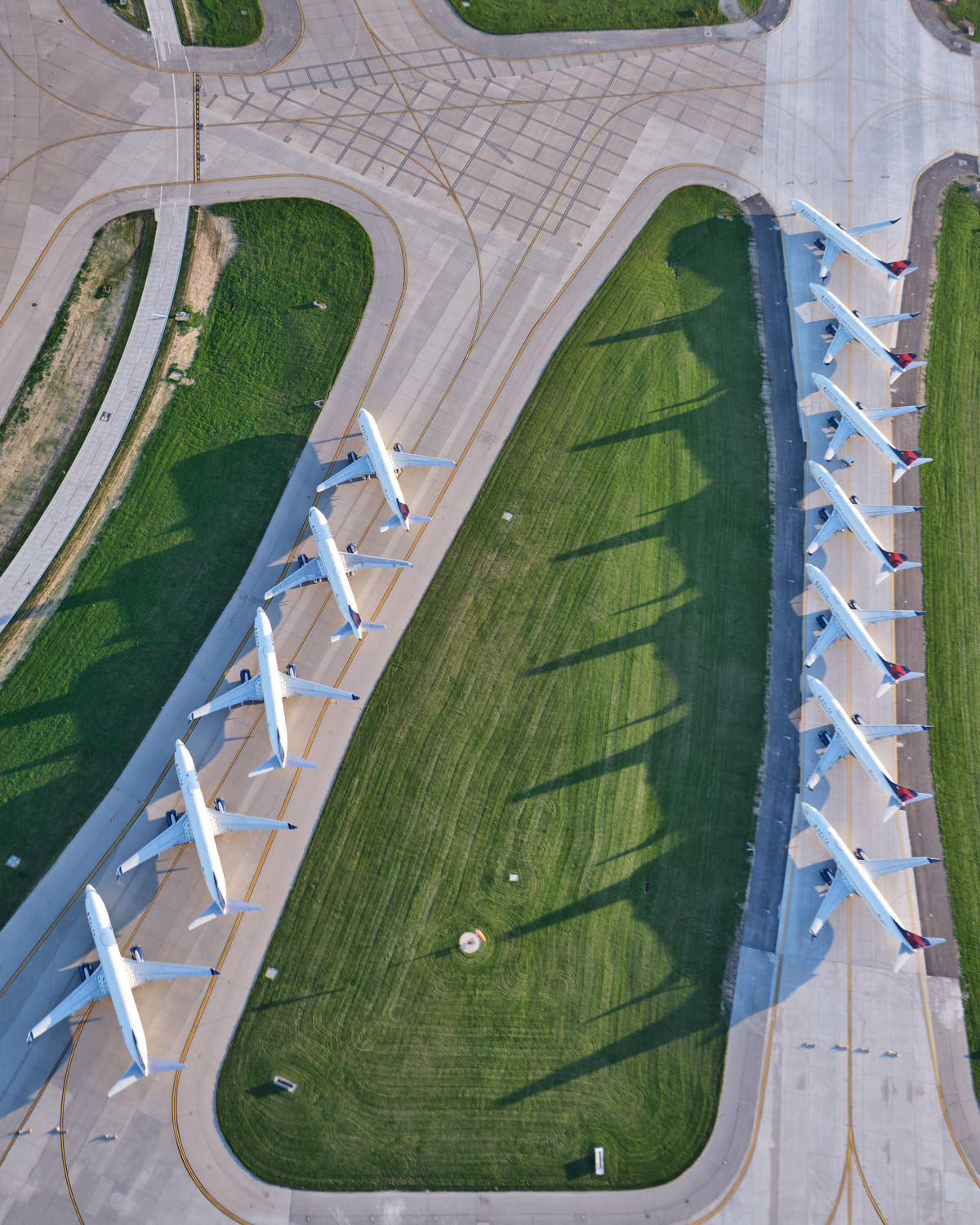[Editor’s note: this post is not intended, in any way, to minimize the scourge of Covid. Friends and family have lost loved ones and the economic calamity has been vast. This is just an opinion piece asking a question.]
The day was May 4, 2020. The world was shut down to try and contain the spread of the most contagious virus ever seen by mankind. JetBlue announced that all passengers would be required to wear masks onboard their flights. This policy was quickly matched by all US airlines.
(Coincidentally, that was the day I was putting the final touches on my They Will Fly Again project before it was released May 5, 2020)
The reason for masks was simple: the US Center for Disease Control (an optimistic name even in the best of times) reversed its initial course of not recommending masks (mostly due to supply concerns for hospitals treating those with the virus) and said that, in situations where social distancing was not possible, people should wear some version of a cloth face covering.
It’s almost two years later and we’re still wearing masks in airports and on planes. The current mask policy expires in 11 days, on March 18, 2022, forcing the Biden administration to answer a difficult question: when should masks be optional on planes and in airports?
The answer is harder than it initially seems. I’m going to lay out some logic to support the Case for Optional and some other logic to support the Case for Mandatory and let you all hash it out in the comments.
The case for making masks optional in airports and on planes
Previous appeals to authority
Keeping track of the public response to Covid has been an adventure, and, predictably in the age of social media, has been unfortunately tribal. All over social media we saw hashtags like #TrusttheScience. People pointed to the CDC’s recommendations, hoping that even if people were reticent to wear a mask that appeals to authority would help. So people wore masks, some begrudgingly and others with a sense of public duty to make sure they didn’t unknowingly get anyone else sick.
So what happens when the CDC says 70% of people no longer need to wear masks, like they did on February 25, 2022? They opined that the majority of Americans now had some form of immunity from the virus, either by vaccination/booster or by natural immunity from contracting the virus. Do we still trust their science? What about countries like Iceland, where the chief epidemiologist recently stated that the government had done everything it could and now restrictions were no longer needed in order for the rest of the population to achieve natural immunity?
Efficacy of masks in the first place
Literally nothing any government did managed to contain the virus. New variants emerged and ran rampant through populations, no matter how severe the restrictions. A medical-grade mask, worn properly, proved effective as means of containing droplets, but what happened if someone was either not wearing a medical-grade mask or was wearing one improperly?
Even in the best-case scenario of regimented mask-wearing, cases skyrocketed. The reason was simple: people would wear masks in public but then come home and take them off. Parties that would’ve been at bars became house parties. Humans are social animals and we require frequent interaction. If everyone followed every guideline perfectly, case numbers would’ve slowed down. As a population, though, if we do things even 99% correctly, it allowed room for the most contagious virus in history to flourish.
It’s not unreasonable to make the case that nothing any government did actually slowed the virus across large populations.
Fewer flight attendant incidents
There have been many stories of unfortunate incidents involving flight attendants being assaulted by absolute trash masquerading as humans. There is no excuse for assaulting a flight attendant, ever. Most of these incidents in the past two years have revolved around the mask mandate on planes. Fines/no-fly lists have not proven to be an effective deterrent. It stands to reason, though, that making masks optional would reduce these incidents and bring things back to historical levels.
I’ll go ahead and say it…mid-term elections
There is political pressure on the Biden administration, which is facing falling poll numbers as the US mid-term elections approach. The Russia/Ukraine War is complicating things, certainly, but there are political points that could be scored to reach across political lines as Democrats try to retain power in the US Congress and state/local governments.
The Covid virus is inclusive, not caring about the political beliefs of those it infects, but the response has unfortunately been very political, from both sides of the aisle in the United States. We were promised a “winter of death” by a presidential administration who, during the same winter, announced that masks were no longer needed! The last administration latched onto the fears of citizens and didn’t require masks as a show of “individual liberty” at campaign events.
Neither side of the political aisle is blameless when it comes to Covid. I do think that both sides tried the best they could, but Covid is unlike anything the world has ever seen.
The case for still requiring masks at airports and on planes
New variants
It’s a fact: you cannot socially distance on planes. Free travel without masking would propagate the spread of any new variants like the world saw with the Omicron variant. Masks are a reasonable accommodation to make passengers feel safe and keep flying, supporting the aviation industry, which is essential to the national economy.
A good habit to encourage
If you ever traveled to an Asian country before the Covid pandemic, you would see handfuls of people wearing masks. In my experience working in different Asian countries, people who weren’t feeling well would still show up to work but they would be wearing a mask to prevent others from getting sick. It’s a great habit to promote, and, hopefully, something more and more people will adopt as we move forward. Planes are a good place to begin, since people are so close to one another.
People are still dying from Covid
Covid is still extremely contagious. People are still contracting the virus, even with safeguards like vaccinations, boosters, and mask mandates. Some of these people are dying.
Localized ease of restrictions vs. easing them at the crossroads
People generally aren’t traveling as much as they were before Covid. Easing restrictions at the local level is best because they can be reenacted when deemed necessary by local government officials. Easing restrictions at an airport, though, means you are allowing people to be around others from around the world in an environment where social distancing is impossible. It’s one thing to say that someone in Dallas doesn’t need to wear a mask around someone else in Dallas but it’s completely different to say that someone from Dallas at DFW Airport doesn’t need to wear a mask on a plane surrounded by people connecting from New York, Los Angeles, and other countries.
Who is right?
Ultimately, no one. Regardless of what we do, Covid will be part of our culture and our lives for years to come. I do not envy those who have to make decisions like this, but there seems to be a sense of inevitability that restrictions will ease, possibly as soon as March 18, 2022 in the skies above the United States.
What do you think? Should we ease mask mandates in airports and on planes?





Masks are health theater. Always have been.
Anyone who understands data/science sees this clearly.
What is the point of a mask when people take their masks off for 15 minutes on the plane to eat/drink?
Cloth masks aren’t effective at ALL.
The Mask mandate wasn’t effective at ALL.
There is a vaccine now for anyone who is concerned.
Masks should be 100% optional, and that is the right answer.
Good point about taking their masks off to eat and drink. If the political science was actually correct about masks being effective then no one should be allowed to take them off at any time. The plane attendants are great about coming by to remind you that if you’re not in the process of sipping, you are in violation of the mask policy. And even on a SW plane, they are not friendly about the reminder. This pandemic has made flight travel especially unfriendly and unpleasant. The policies have pitted people against each other. No one even visits with each other anymore because you might throw your germs their way. It’s like we consider each other a probable enemy. That’s one topic that was not brought up. Andy, you might add that to another blog.
Yes.
No, make people wear n95 masks and if they refuse put them on a us wide no fly list for life.
It was time 18 months ago when we knew masks don’t stop the spread of a virus. And if you’re in the risk group threatened by covid, the last thing you should be doing is getting inside a vacuum tube packed with other people anyway. Common sense is just too much to ask for in this woke age.
I made hundreds of masks in the initial phase and researched the best and safest way. There wasn’t one. Even the holes the sewing machine made let the virus escape. Cloth masks are useless, especially on a plane or at a nursing home. It’s N95 or nothing and even then, the hospital doctors bought $50 masks for them and their staff. The data shows that masks and lockdowns were in no way effective. There are protocols that they knew were effective from the beginning of the US pandemic but neither administration advertised or followed them. Even when we contracted the Delta last August in Texas, we effectively used the information we gathered from a myriad of sources. We were unvaxxed and high risks in several categories but survived and thrived. We continue to follow the vitamin regimen. Please contact me if you want the list. Your government is not concerned about your health. When the POLITICAL science changes, so does their requirements.
Great article which addressed key points on both sides. Masks should stay while we resume business as normal on other fronts. While I don’t personally believe I’m being threatened by COVID, I know and work with a growing number of immunocompromised people who are now looking at the world through a window because they fear going out because no one wears masks.
My grandfather passed away from COVID related complications after battling lymphoma for 3 years. He was vaccinated and boosted, but with Omicron vaccines weren’t that effective in preventing the worst outcomes for the immunocompromised.
This is something we are hearing from oncologists and cancer patients from across the world. Immunocompromised people (esp. transplant patients and blood cancer patients) are dying at an incredibly high rate due to Omicron.
I would hope people show some compassion to those not as fortunate as they are. No one is asking for another lockdown, but the simple act of wearing a mask helps a lot in saving lives especially in confined spaces like airplanes.